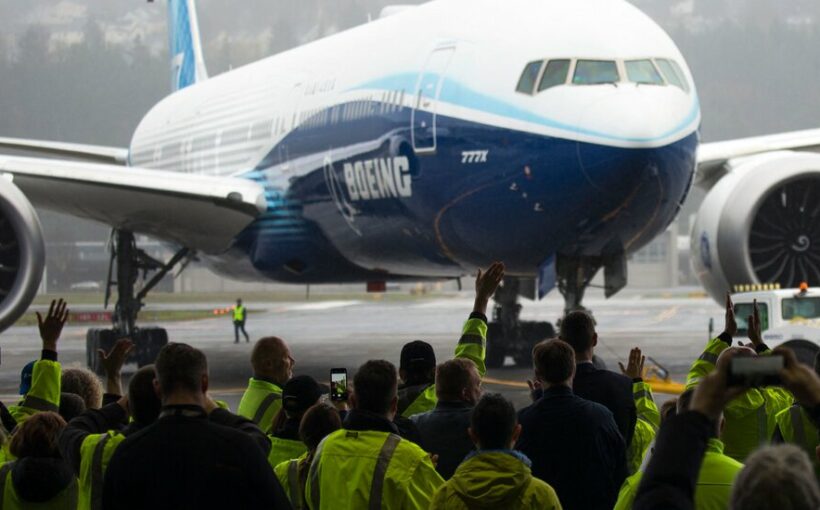By Niraj Chokshi
Boeing has suffered a setback in its effort to win regulatory approval for the 777X, a large jet designed for long-range flights.
After nine months of deliberations, the Federal Aviation Administration said in a May 13 letter to Boeing that it was unconvinced that the company was ready to move ahead with “type inspection authorization.” Securing that authorization signifies that a plane is about three-fourths of the way to being certified and is necessary to move forward in that process.
The F.A.A. said that it would need to commit more agency resources to certifying the plane, that Boeing might need to conduct more test flights and that the 777X was unlikely to be certified before late 2023. Originally scheduled to enter service in 2020, the 777X has been delayed many times. Boeing’s chief executive said earlier this year that he did not expect certification until late 2023.
“Boeing remains fully focused on safety as our highest priority throughout 777X development,” the company said in a statement. “As we subject the airplane to a comprehensive test program to demonstrate its safety and reliability, we are working through a rigorous development process to ensure we meet all applicable requirements.”
News of the letter, reported Sunday by The Seattle Times, comes as Boeing struggles to overcome problems on several fronts. It also reflects frustration within the agency that Boeing continues to pursue approval for proposed fixes and certifications without fully meeting regulatory requirements, even after a crisis involving the 737 Max, the star of Boeing’s commercial airplane fleet.
The Max, which is designed for shorter flights, was banned worldwide in early 2019 after two fatal crashes. Airlines were able to start using the single-aisle plane again late last year, but some customers had to stop flying it in the spring as Boeing investigated a potential electrical concern. In May, the F.A.A. approved a fix for that problem, which affected only some Max jets.
In addition, Boeing has twice halted deliveries of the 787 Dreamliner, a jet designed for long-range flights. After suspending deliveries last year, the company started handing the plane over to customers again in March. Boeing shipped about a dozen before it stopped deliveries again last month as the F.A.A. sought more information about the company’s inspections of the plane.
As with the Dreamliner, the holdup with the 777X centers on a contention by the F.A.A. that Boeing must do more to satisfy the agency’s concerns. Specifically, the letter cited incomplete design reviews, insufficient data and concerns over a December test flight in which the nose of the aircraft suddenly shifted direction. Boeing said the December flight had continued without incident and landed safely. It plans to address the cause of the event in a software update.
At an investor conference this month, Dave Calhoun, Boeing’s chief executive, said he was pleased with the plane’s progress toward certification.
“I have lots of confidence in it,” he said at the Bernstein Strategic Decisions Conference. “We love it. We want to do it. We think it fills an important part of the marketplace. It’s an incredibly efficient airplane, and we think it flies on its own.”
Site Index
Site Information Navigation
Source: Read Full Article


